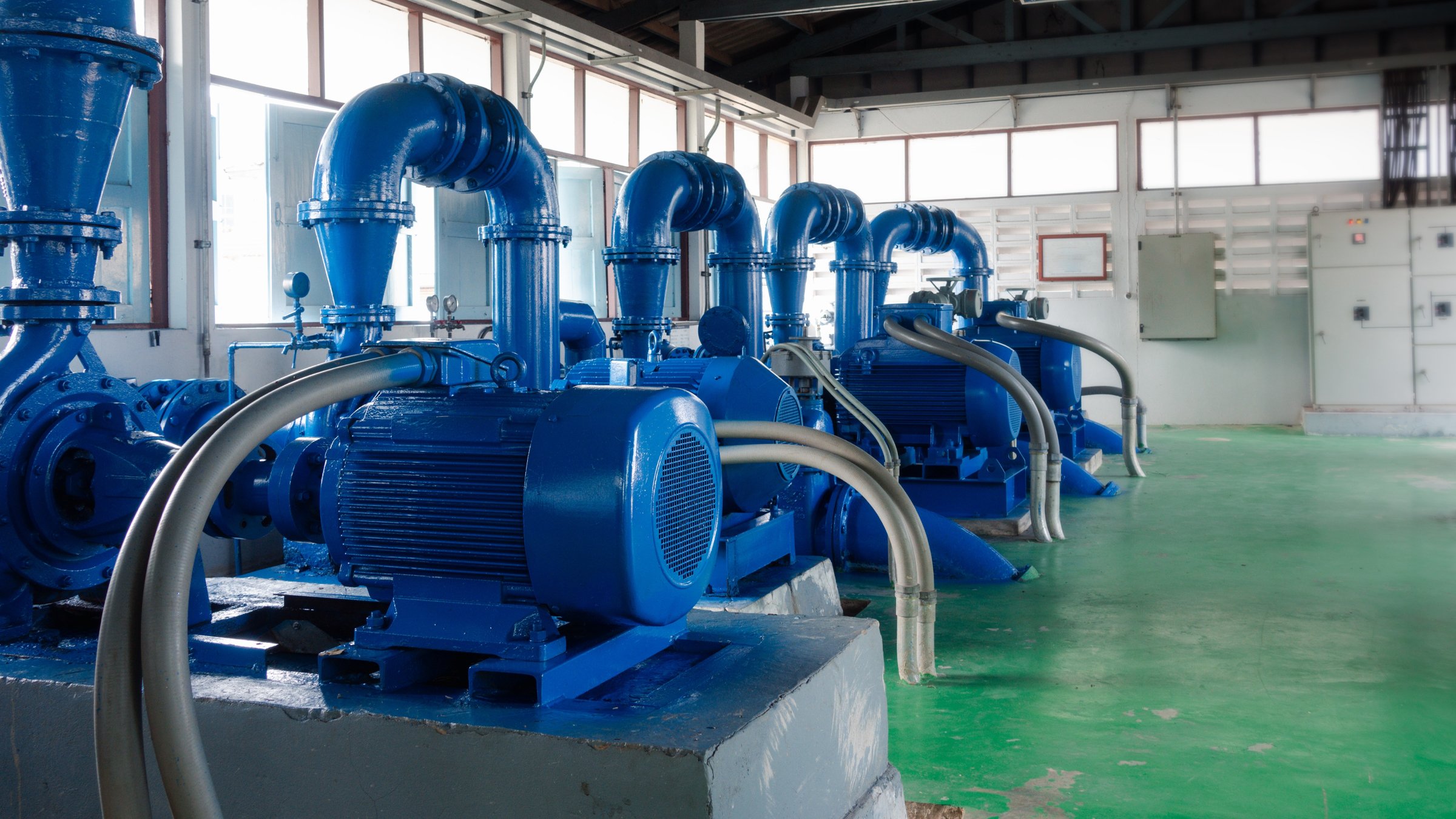On-Demand Webinar
Harnessing AI for Operational Improvements in the Water/Wastewater Industry
Improving Efficiency and Reducing Chemical Usage for Aeration Blowers
On-Demand Webinar
Harnessing AI for Operational Improvements in the Water/Wastewater Industry
Improving Efficiency and Reducing Chemical Usage for Aeration Blowers

Water and wastewater utilities are looking for trusted technology partners who help them meet these challenges. In particular, they need technology partners in the earliest project stages as they design their water and wastewater treatment plants. Stakeholders are also keen to leverage the benefits of artificial intelligence (AI), machine learning (ML) and digital twins.
At Rockwell Automation, we work with utilities as a collaborative partner during the early stages of project design, helping deliver scalable, secure and intelligent automation solutions that modernize operations, improve compliance, and empower the next generation of water systems.
A smart water plant thinks, adapts and evolves. By embracing digital transformation, in particular the power of AI and ML, today’s leading water and wastewater facilities are building intelligence into every aspect of their operations, driving sustainability, reliability, and resilience—and moving ever closer to the ultimate goal of autonomous operations.
Introducing the Smart Water Plant
OPERATIONAL INTELLIGENCE
Digital technologies from Rockwell Automation empower operators with real-time data and actionable insights, enabling faster, more informed decisions. With Artificial Intelligence (AI), equipment continuously optimizes performance, improving efficiency while reducing environmental impact. Our smart tools go beyond traditional automation processes, ensuring consistent water quality and making every operational decision count.

WORKFORCE PRODUCTIVITY
As experienced workers retire, and amidst a skilled labor shortage in general, Rockwell Automation’s digital tools help utilities capture and preserve vital institutional knowledge, and free up workers to focus on higher-value activities. Digital training records and standardized operating procedures streamline onboarding and training. Meanwhile, remote access capabilities allow teams to monitor and manage operations from anywhere—boosting productivity, enhancing safety, and ensuring continuity even in disruptive conditions.
PLANT EFFICIENCY
Smart water plants rely on resilient networks to support connected systems, protect critical data, and meet increasingly stringent regulatory requirements. This digital backbone strengthens cybersecurity and supports both environmental protection and operational resiliency, ensuring that water plants serve their communities reliably, even in the face of unpredictable climate events.
ASSET PERFORMANCE
Smart equipment provides insights. By continuously monitoring performance, intelligent systems from from production data to actionable information. Rockwell Automation enable predictive maintenance, detecting anomalies before they become problems, enabling proactive maintenance and extending asset life. With advanced asset management strategies, utilities can reduce maintenance costs, improve reliability, and minimize energy consumption through efficient equipment operation.
CYBERSECURITY
Smart water plants help ensure that their entire digital approach - from the hardware and software they use to the vendors they work with – supports a more secure pathway from production data to actionable information.
Building intelligence into every area of your operations
Population Shifts/Aging Infrastructure
Work/asset management
Energy/pump optimization
Plant management
Climate Change Resiliency
Digital twin and emulation
Network design
Process control strategies/standardization
Regulatory Compliance
Plant monitoring and optimization
Information management
Cybersecurity
Workforce Productivity
AR/VR technology
Digital work instructions
How water and wastewater automation works
The wastewater and water treatment industries are facing a range of challenges, from tighter quality standards and rising labor costs to aging legacy systems and more stringent government regulations. Water automation enables wastewater businesses to remain competitive despite these growing hurdles.
By incorporating water automation systems and technologies into their workflows, water industry businesses can enhance and streamline different facets of water treatment procedures, such as monitoring, control, data analysis, chemical dosing, and equipment operation.
Benefits of water automation systems
Water treatment automation solutions offer a wide range of benefits.
These include:
GREATER ENERGY EFFICIENCY
Automation enables greater energy efficiency throughout many wastewater treatment processes. With end-to-end visibility and real-time access to data, businesses can better control energy-dependent processes like aeration to maximize efficiency and limit wasted resources.
REDUCED CHEMICAL USAGE
Automation provides the chance to decrease the need for chemical additives in wastewater treatment. By adjusting factors like pH levels and sludge depth, operators can enhance chemical efficiency. Improved data access allows for proactive equipment maintenance, extending equipment lifespan and lowering chemical expenses.
STREAMLINED PROCESSES
Outdated equipment and procedures can lead to inefficiencies throughout the water treatment processes. Automation enables water industry businesses to optimize their processes, limiting wasted resources and time.
EFFICIENT RESOURCE UTILIZATION
By streamlining processes with water automation systems, businesses can better allocate their resources to where areas where they are needed.
HOLISTIC DATA ACCESSIBILITY
Automation can provide businesses with constant access to data which empowers real-time decision making on resource utilization.
Additional Benefits of Automation in Wastewater Treatment
While water automation solutions empower businesses to streamline their processes with greater visibility and readily accessible data, that’s just the start of what it can provide. When businesses employ wastewater treatment automation, they realize benefits such as:
Reduced Human Error
Agile Responses to Market Fluctuations
Remote Systems Monitoring and Control
Predictive Maintenance
Enhanced Worker Safety & Environmental Compliance
Automated Systems in Wastewater Treatment Facilities
Water automation solutions offer a wide range of benefits, enabling businesses to streamline both physical and digital processes. Wastewater treatment systems and processes that can benefit from automation include:

Others also viewed
Based on your activity